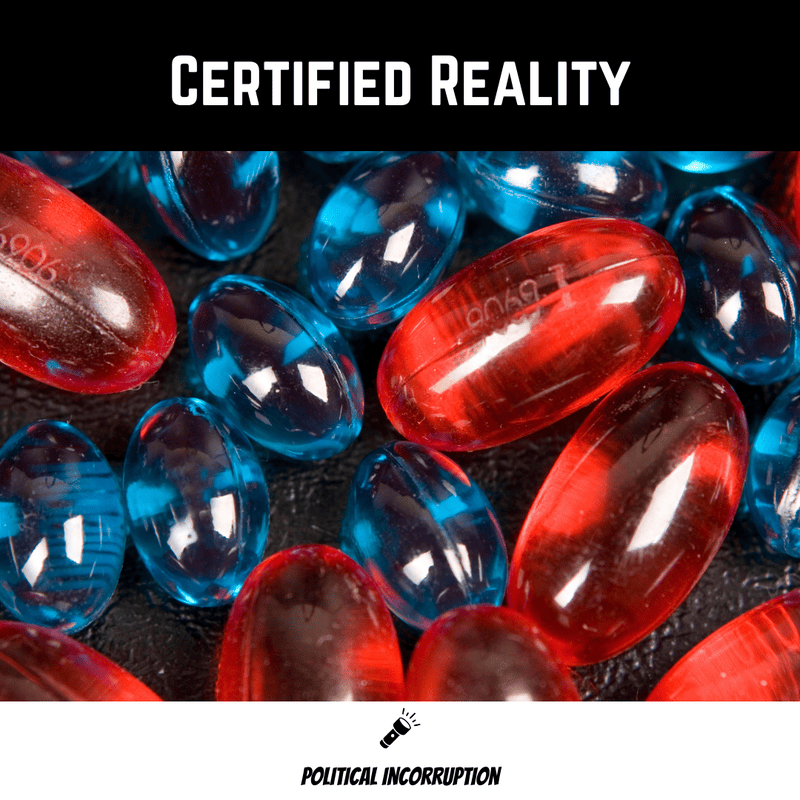How do we know what’s real in our shared reality? Our reality has become complicated, and nefarious actors have complicated it further. Pinning down an unwavering definition of reality is a lifelong task for scientists and philosophers alike, so it’s no wonder we’re struggling. Unfortunately, reality has become a severe point of contention in the United States. We will explore our shared problem with reality, why it’s a magnificently tricky problem, and some proposed solutions.
A Universal Problem
Since the advent of The Internet, attacks on reality have increased. Attacks on truth are nothing new, but the sheer volume of blatant and public attacks changed. In the 2020 election cycle in the United States, Donald Trump pushed for an alternate reality through lies and deception. The number of people that supported this alternate reality is staggering. Approximately 71 million people voted for an alternate reality, and Trump is still spinning the fake news with his devoted followers’ help.
New technologies have brought deep fakes to the forefront of political discourse and have the potential to flip elections, overthrow governments, and ruin people’s lives. When I first encountered deep fakes, my first thought was someone using a deepfake to ignite a nuclear war. I hope anyone with nuke codes would verify evidence before pressing the big red button, but people still have fight or flight reactions, and crazy people like Trump are known to drop bombs on countries out of spite. It could happen, and that’s a severe problem.
What Are The Challenges?
We use signature notarization to put a rubber stamp on reality. When someone buys a home, they sign documents with a notary public officer to certify homeownership, debt liability, and law comprehension. It protects the homeowner, the banks, home seller and makes the sale official. It’s not complicated, but it has proven an effective way to limit chaos.
We use tools to certify reality outside of notaries like trusted news sources, fact-checkers, and Wikipedia. Unfortunately, all of those tools are exploitable and bad faith actors have found ways to discredit every authority.
The biggest challenge is protecting ourselves from centralized arbitration of the truth. Centralizing fact-checking is a recipe for an Orwellian future. If appointed arbiters used their power to manipulate people en masse, we would never know who’s watching the watchmen.
Internet-based companies like Facebook and Twitter should not be arbiters of truth. I don’t believe Governments should be arbiters of truth either.
So how can these challenges be addressed?
Solutions
Sometimes the best solution is the most obvious. Somehow humanity has made it from the annals of ancient Rome by utilizing notary public officials. We could use a distributed network of eNotary public officials. For digital content to be validated, it would require notary signatures depending upon the urgency of different claims. More notary public signatures could be required when there are real consequences of spreading a false claim. When a notary public official falsely notarizes content, serious consequences would lead to banishment from future notary positions.
I know this solution creates new challenges. As with any solution, there are tradeoffs. Ensuring a notary public network’s integrity is challenging but less challenging than ensuring the average politician’s integrity. In the least, having an efficient network of notary public officials would add a level of narrative control leaning towards a certified reality.
Making notary public officials commonplace at news conferences, impactful events, and other places where the truth matters would create many jobs as a side benefit.
An alternate, and less revolutionary solution, includes imposing a standard claim data exchange format like Google’s Fact Check Tools API. Each news source could be legally obligated to enter their claim data into a national database. The data would then be aggregated and made openly accessible to the public to allow for public analysis of the data. Having this data available would simplify the fact-checking process and provide us with a shared reality.
Conclusion
The United States has a lot of intelligent people living in it. It’s time for intelligent people to devise a way to address this serious threat to our shared reality. Without a shared reality, Trumpian-style movements will continue to grow and do even more damage to our society’s integrity. We must address this social crisis as soon as possible. If we don’t act quickly to save the republic, society will be more out of hand than it is, and that should keep us all up at night.
